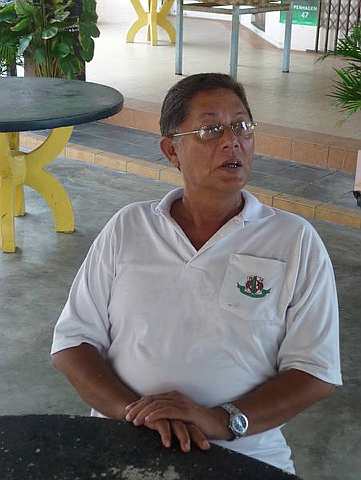The community living in the Portuguese Settlement in Malacca is made up of descendants of the Portuguese from Portugal who arrived in Malaysia in the year 1511.
As a result of inter-marriages with the locals, the Portuguese in Malacca are a unique community that combines both local and traditional cultures from Portugal.
The settlement started as a small fishing village with only two houses sometime in the 1930s; today, there are more than 1,000 Portuguese residents living in the area.
Peter Thomas Gomes, 54, the Regedor or ethnic head of the community, said that the three important factor that contribute to a race are language, culture and religion. Most of the Portuguese who live in the settlement are able to speak Kristang, which is an ancient form of the Portuguese language.
“The dialect we speak originated 500 years ago but still remains the same, while the dialect spoken in Portugal has evolved throughout the years,” said Gomes.
Unfortunately, there is no official written form of the language.
“Our language here was never written down, only promoted by speech. We are thinking of documenting our language but we need the help of a linguist to do so,” Gomes added.
Every year, the Portuguese community in Malacca hosts a list of colourful festivals in celebration of their culture and heritage.
explained that most of the festivals celebrated are based on their Roman Catholic beliefs, and has been passed on by their ancestors.
Some of these festivals include the Festa de San Pedro or the feast of St Peter, Festa de San Juan (feast of St John) and Festa Intrudu, or Water Festival.
The Water Festival – so called because people get to splash water at anyone who comes by the Portuguese Settlement – is celebrated three days before the Lent (or fasting) season begins. The ritual of splashing water symbolises the cleansing of one’s soul from sins before entering the 40-day fasting month. During this time, tourists and visitors throng the settlement to participate in the “fun”.
“It’s like a carnival where anybody can join,” said Gomes.
Of course, apart from it being just fun carnivals, the festivals that the Portuguese celebrate are also a way for the community to pass on their traditions to the younger generation, as well as spread the knowledge of their history and heritage to others around the world.
*Check out the video:


Tell us what you think!